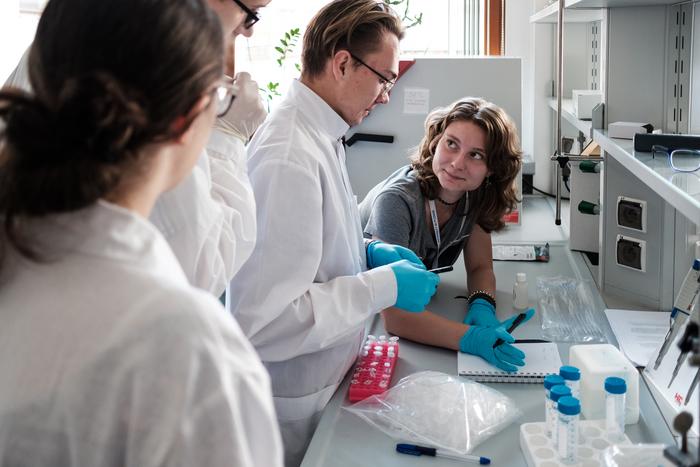The burgeoning landscape of academia faces significant challenges when it comes to fostering networks that encourage collaboration among early career researchers. In light of these challenges, the innovative establishment of EPICUR Hubs emerges as a beacon of hope for young scholars across Europe. The Hubs are designed as transnational and interdisciplinary centers, aimed at providing unique networking opportunities and educational resources for budding researchers. With a mission to facilitate exchange, the Hubs intend to break down barriers that traditionally hinder scholarly interaction outside specific conferences or local research groups.
Navigating the complex world of academic networking can be daunting for early career researchers. The EPICUR Hubs strive to alleviate this difficulty by offering a structured platform for young academics to connect, share insights, and collaborate on impactful research. The initiative reflects a conscious effort to establish an accessible and straightforward network of skills across Europe. The Hubs are an integral component of the EPICUR Alliance, which is dedicated to creating an innovative and attractive educational environment. By connecting scholars from nine partnering universities, the Hubs enable an unprecedented level of cooperation.
Professor Thomas Hirth, who serves as the Vice President of Transfer and International Affairs at the Karlsruhe Institute of Technology (KIT), emphasizes the critical importance of collaboration with European partners. He asserts that the EPICUR Hubs are pivotal for transforming Europe into a leading global center of scientific inquiry. By pooling knowledge and resources, these Hubs aim to empower young scientists alongside regional stakeholders, promoting joint efforts on innovative projects. This collaborative mindset is essential for developing solutions to the pressing challenges of our times.
The EPICUR Hubs are designed not merely as meeting places but as incubators for new ideas that drive cooperation among academia, industry, and civil society. These centers facilitate a diverse range of educational formats—including virtual, hybrid, and blended learning experiences—that cater to the varying needs of students and early career researchers. Offering a comprehensive suite of courses, workshops, and networking events, the Hubs create an environment where young scholars can thrive and develop their skillset in an international context.
One of the standout features of the EPICUR Hubs is their focus on addressing global challenges through interdisciplinary collaboration. Kirsten Rosa, the Research-Oriented Teaching Officer of the EPICUR Project, elaborates on this commitment by highlighting how the Hubs serve to support young researchers in gaining international experience. The ability to engage with peers from different cultural backgrounds fosters the exchange of innovative ideas and fresh perspectives, which is essential for tackling urgent global issues.
The ambition of the EPICUR Hubs extends beyond immediate academic benefits; it aims to create synergies that can lead to groundbreaking initiatives in various fields. The first of these Hubs is set to focus on sustainable transformation, a topic of paramount importance in today’s world struggling with climate change and ecological degradation. The synergy created between young researchers and industry partners is designed to cultivate an environment conducive to collaboration, allowing for the practical application of academic findings to real-world problems.
The development of additional Hubs is already underway, with themes such as “European Values,” “Global Health,” and “Future Intelligence” planned to launch by the end of 2026. These Hubs will further serve as incubators for new ideas, driving collaborative efforts that merge the realms of science, business, and society. This project reflects a larger trend in European academia, where interdisciplinary approaches are gaining traction as the way forward in research and development.
The initiative is not just about creating a network; it addresses the critical gaps in educational access and funding that young researchers often face. By providing vital infrastructures and educational funding sources, the EPICUR Hubs aim to democratize research opportunities, allowing young scholars to pursue innovative projects without the typical financial burdens that inhibit creative exploration.
In terms of format, the EPICUR Hubs embrace a multitude of methodologies, from online events to intensive in-person workshops, catering to the evolving needs of the academic community. By employing blended learning techniques, the Hubs ensure that participants benefit from both virtual and face-to-face interactions, maximizing the richness of the learning experience.
The official launch of the EPICUR Hub took place on April 08, 2025, marking a significant milestone in the initiative’s journey. This virtual kick-off serves as a strong testament to the commitment towards building a robust academic network where ideas can flourish across borders. As each Hub opens, it invites a multitude of perspectives into the fold, enriching the academic discourse and promoting inclusivity within scientific inquiry.
As part of the larger vision behind the EPICUR project, the alliance unites prestigious institutions across Europe, including universities from Poznań to Karlsruhe. This collaboration fosters a diverse cross-section of academic thought, which is indispensable in engineering solutions to complex problems that transcend geographical boundaries. The partnership seeks not only to enhance research output but also to cultivate a new generation of thinkers prepared to address the multifaceted challenges of the modern world.
In the context of its role within the Helmholtz Association, KIT embodies the principles of creating and disseminating knowledge that is significant for society and the environment. The institution endeavors to tackle global challenges across various domains, from energy to information technology, by enlisting the expertise of nearly 10,000 personnel. By preparing 22,800 students through research-based study programs, KIT champions the importance of innovation and practical application in fostering societal benefits.
Overall, the EPICUR Hubs represent a transformative approach to academia, breaking down silos that can often limit collaboration and creativity. Through interdisciplinary engagement and enhanced access to educational resources, the project aims to cultivate a thriving environment for early career researchers, positioning Europe at the forefront of global scientific innovation.
Subject of Research: Early career researchers’ networking and collaboration
Article Title: EPICUR Hubs: A New Era for Early Career Researchers in Europe
News Publication Date: October 2023
Web References: N/A
References: N/A
Image Credits: Adrian Wykrota, EPICUR
Keywords: EPICUR Hubs, early career researchers, networking, collaboration, academic initiatives, interdisciplinary research, global challenges, education, Europe.




